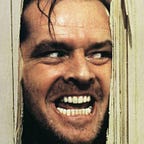Cannibalism Conceptualized: Why the “Ew”?
The Donner Party, Jeffrey Dahmer, Hannibal, inaccurate and racist fictitious portrayals of isolated Amazonian tribes…Regardless, we all have at one point came across the concept of cannibalism: The ultimate betrayal to humanity, the eating of one’s own kind.
So why then is it such a common thing in the animal kingdom? Don’t get me wrong, this isn’t a defense on the ethics and morals behind the act (believe me, I’m not that weird), but rather its a psychological dissection of where the visceral horror of the concept comes from. Though parsed by a college-aged horror junkie with a roommate with a questionable fixation on the subject, I hope that through our casual discussion of the topic, you too can begin to conceptualize where such universal fears and anxieties stem from.
Like everything, it starts with Society.
Pack-animals aside (and I suppose some colony bugs like ants and bees), humans are truly unique in their creation of a system where its participants depend on one another for survival. We’ve advanced to the point of written language and international communication and commerce through technological means, a point we would not have reached had we maintained our inherent competitiveness for survival. (Before you say something, yes, Capitalism is the watered-down remains of this, and yes, its still inherently destructive to the improvement of society.) As such, we as bizarrely evolved animals have reached a point where we can enjoy the fruits of our collective labor, all at the sacrifice of more primal instincts.
Cue cannibalism. Have you ever considered cannibalism? If you’re normal and immediately responded with a firm “No!” then congratulations! You’ve successfully been emulated into society, and have thus proven yourself to not be a threat to your fellow humans!
Though its hard to grasp from our perspectives as contemplative creatures who’ve had the concept of sympathy ingrained in our minds (Could this also be a result of Society? Hmmm…), if you consider cannibalism objectively, there really is no discernible way to express its harm, other than the harm it obviously inflicts on its victims (assuming they’re alive for the act). Though cannibalism has existed in the most depraved (and the most desperate) among us in the modern Western world, the idea that a human can consume another human is…disturbing, to say the least.
So, what’s the difference between eating animals and eating one of our kind? They’re not one of us! It’s as simple as that: We are natural omnivores, of whom benefit from the the ingrained instinct to not want to consume thy neighbor, mainly because our neighbor looks like ourself.
This brings us to cannibalism portrayed in media, which, surprise-surprise, possesses racist origins!
Starting in the 1970s and flourishing from then on into the 80’s, the niche of cannibalism in the horror genre has revolved around the “othering” of groups of people whose form of society fail to meet Western standards. Enlisting the bastardized portrayals of “primitive” natives from isolated and foreign settings (especially Asian and South American rainforests), cannibal movies prey on the ingrained white fear of other cultures, as well as the white superiority complex that allowed our ancestors to imperialize people who co-existed with nature and lived outside of our established concepts for hundreds of years. Examples of this are the infamous Cannibal Holocaust (1980), whose realistic depiction of gore in the Amazon lead to a criminal investigation into the well-being of its actors. Following this film (whose production is a controversy in itself), Cannibal Ferox (1981) (You won’t believe what movie this was directly inspired by!), and even a movie as recent as Green Inferno (2013) (Also a direct knock-off of Cannibal Holocaust) play into Western-audience’s lack of exposure to tribal communities, and thus their susceptible anxieties to how they act “differently” from them. Truly we’re still in touch with our roots, depicting natives as monstrous to nullify the guilt of stealing and invading upon their land.
Though one can argue that such films as Hills Have Eyes (1977) and The Texas Chainsaw Massacre (1974) provide a perception of this type of human depravity within the context of the white boonies, even still this can be attributable to elitist perceptions on the character and intellect of the Southern poor (especially the mentally and physically handicapped Southern poor), whose demonization is equal to the devaluation of their political opinions. (Disenfranchised people lacking insurance petitioning for free healthcare and unionization? More like cannibalistic, uneduated, parasitic savages! Am I right?!)
Seeing how cannibalism has been utilized as a tool to dehumanize specific demographics, we can discover ways in which concepts of horror are used to enforce stigmas that both benefit and reinforce the status-quo. Though horror at first glance seems like a genre pandering to the shallow, visceral fears of humanity, it can also be seen as a useful tool in how fictional propaganda helps shape our belief systems as a society.
